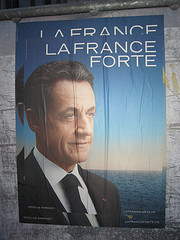
French Presidential Election: Where is the Meat?
When General de Gaulle empowered the President of the 5th Republic with far-reaching executive attributes, he sought to alleviate the head of state from what he called the “grenouillages” of politics. This has worked efficiently. Yet, his intention was certainly not to avoid debate over policy-proposals and between candidates. Unfortunately, this is what is happening in the 2012 French presidential election: it has moulded into a referendum on one individual, the President. For this very reason, it seems the socialists have a very good shot at taking the Elysée. Not because they have a better project – they don’t; not because their candidate is better – he isn’t; but because Sarkozy is unpopular and because there has been little debate between the main candidates – if at all. Nicolas Sarkozy may …
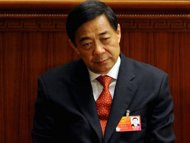
Bo Xilai’s ouster is about Chinese party politics – and fears over his popularity
As the most high profile ouster in the Chinese Communist Party (CCP) since 1989, the departure of Bo Xilai, a high-level Party official, illustrates two matters. First, it demonstrates that the consensus of collective leadership and demand for Party unity remains very strong. But second, it reflects the increasing strain on the Chinese political system and casts doubt on its capacity for change. A bit of background. After 1978, the CCP embarked on a political strategy to consolidate its hold on power that was based on collective leadership. This choice was informed foremost by the necessity to prevent the rise of another Mao-like autocrat; but a second key principle insisted on keeping leadership divisions out of public view. This policy …
Solve Syria, Don’t Provoke Iran
From Project Syndicate in Collaboration with Martin Van Creveld: Israel is daily ratcheting up its threats to attack Iran over its nuclear program. Unfortunately, these threats have come to overshadow more pressing events in Syria, which is the epicenter of a regional crisis that will determine the future of the Arab Spring, as well as Iran’s role in the Middle East. Throughout 2011, the Arab uprisings were driven by each country’s internal dynamics. Yet the disparate movements were united by the pursuit of freedom, dignity, and economic opportunity. Now this liberal narrative is breaking down. Chaos reigns in Egypt and Libya, where post-revolution authorities are proving too brittle either to consolidate their authority, or to incorporate more popular forces. In …

Slackers and Saviours, Kony 2012
Much has been said of the viral Kony 2012 campaign, ‘a film and campaign by Invisible Children that aims to make Joseph Kony famous… to raise support for his arrest and set a precedent for international justice’. The last page of the Invisible Children Kony 2012 action booklet reads, ‘Joseph Kony is the worst living criminal…He remains at large because he is invisible to the world. Few know his name, even fewer know his crimes. This year we are making Joseph Kony famous, because when he is, the world will unite for justice and demand his arrest’. The Campaign The campaign kicked off with the release of a (painfully narcissistic) 30-minute film that grossly oversimplifies the conflict and the actors. …
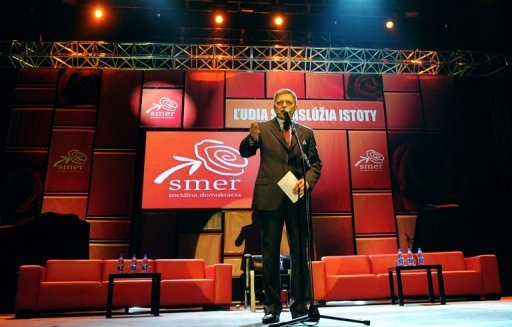
Slovakia’s election: another majority government from a proportional electoral system
On Saturday 10th March 2012, Slovakia joined the small but growing club of European countries that elected a majority government despite using a proportional representation system. The centre-left Smer party, led by Robert Fico, won 86 out of 150 seats with 44.9% of the vote. Although it was predicted that Smer would win the election, even Fico himself was surprised by the scale of the result. Since the eurozone crisis started to bite, strong anti-incumbency sentiments have regularly produced extreme results. In Hungary, Fidesz won more than a two-thirds majority in parliament in 2010 with 68% of the popular vote. In Scotland, a proportional electoral system unexpectedly produced a majority government in 2011, when the Scottish Nationalist Party (SNP) won 69 out of 129 seats with 45% of …

Nothing “super” about Super Tuesday
Super Tuesday came and went, and I’m not sure people in the ten states involved felt it was all that “super”. Despite some Republican party activists asserting this is the most important presidential election since George Washington was elected (no, really), voter turnout in several cases was lower than in the 2008 Republican Primary. Many of those who did vote were not enthusiastic about any of the candidates running. According to the Washington Post, “Barely more than four out of 10 voters in Ohio said they were strongly behind their candidate, according to exit polls”. And people aren’t enjoying the spectacle of the campaign itself either—the New York Times quotes a couple from Ohio complaining about the “barrage of ads” …
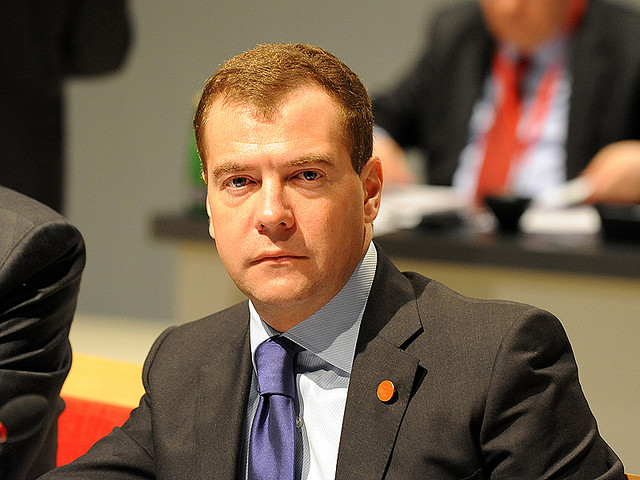
Electoral Reform in Russia: End of the Line for the ‘Locomotives’
Russia’s out-going president, Dmitry Medvedev, has submitted a bill to the State Duma proposing that parties should be banned from fielding ‘fake’ candidates at the top of regional lists for Duma elections. These candidates, usually well-known or popular figures, are referred to in Russian as parovozy(locomotives), and have no intention of taking up seats in the Duma. They appear on the ballot paper solely to attract voters. Following the election, they cede their seats to lesser-known candidates further down the list. Medvedev’s proposals are part of a wider programme of electoral reform, including the re-introduction of gubernatorial elections, which were abolished in 2005. Directly appointed governors had become a liability to the Kremlin in recent years: as an unintended consequence of its …
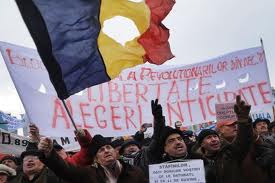
Honour and Solidarity: The 2012 Romanian Protests
On January 12, over 1,000 Romanian citizens came out on the streets of Bucharest to protest against the resignation of Raed Arafat, the Minister of Health. Mr. Arafat’s resignation was triggered by his discontent over proposed reforms to the emergency medical system under a new health law and also as a result of criticisms from Romanian President Traian Basescu, aired on national television. A Romanian citizen of Palestinian origins, Mr. Arafat is regarded by many as a national hero. In 1991, he created SMURD, a mobile emergency service which has thus far saved thousands of lives and is the most modern and advanced medical facility that the country possesses currently. Due to a lack of government investment and staff departures, the medical …









